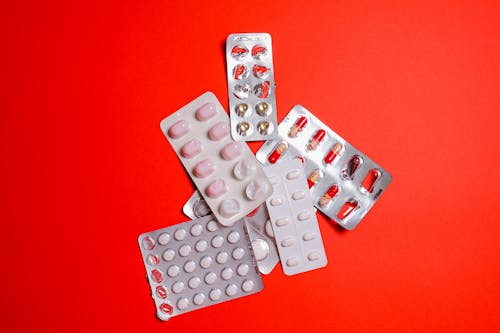The accidental discovery of Penicillin by Alexander Fleming has an important role in the field of medicine. It was regarded as the wonder drug during that time. This natural drug extracted from the 'Penicillium chrysogenum' fungi is termed as antibiotics medicine.
Antibiotics at that time were the most powerful drug to cure even the difficult to cure diseases. These diseases include those which even the normal medicines were unable to treat. Even today anti-biotics are used as an ultimate option if any other form of other medication fails to do so.
What does it have to do with the given topic on medicines becoming ineffective over time? The answer is as clear as it is thought and antibiotics are one of the reasons among many.
The human body; like every biological being, is vulnerable to diseases from pathogens, environmental factors and genetics. From the past, we have extensive knowledge on the treatment of various diseases through the use of available resources.
With the advancement in science and technology, most of the diseases are treatable. Modern medicines are able to completely wipe the diseases that have plagued in the past.
A medicine becomes no longer effective when the disease reaches the point of no return. Late-stage diseases cannot be cured. Well, it may provide some relief, but it becomes as bad once its effects are over. Pain relievers are excellent examples. As the name suggests, pain relievers are used to minimize pain.
On body injuries; pain relievers disrupt the pain receptors and prevent the impulse from reaching the brain. This helps to recover from an injury or uneasiness without the discomfort of pain. It does not treat the injury though; it just functions to block the pain signals. Like a curtain blocking a rickety chair, you won't see it but it is still there.
Related: Why Are Doctors Handwritings So Hard To Understand? - I Think I Figured It Out
The cheap availability of painkillers is one of the reasons of many problems.
Taking painkillers on basic discomfort increases the urge to use them even more on pains that can simply be treated. Continued usage renders its ineffectiveness as the drug contents become the new normal to the body. Painkillers make the body physically weak and the senses become ineffective.
This may increase the risks of further complications which may be associated with severe diseases. Additionally, there is the risk of loss of pain permanently. This is so because it not only suppresses pain in the specific area; but the entire body.
In short, regular use worsens your body instead. Antibiotics have a similar story but far much worse.
As the name suggests, antibiotics mean anti-bodies, i.e. against the living biology. Antibiotics are used to treat the diseases caused by living biological beings such as bacteria, worms, etc. They are not used to treat diseases caused by non-biotics but are used as a precautionary step. This helps to prevent infection in case the injury is external.
Antibiotics, as mentioned before, are first derived from natural sources later they were made chemically. Antibiotics are often the second last effort to cure a disease as they are powerful drugs. Doctors rarely prescribe them for just a minor disease.
However; similar to cheap availability and low regulation; such medicines are used frequently for common diseases. This has a negative drive in its effectiveness. Antibiotics were the natural compound to keep off various diseases away from harming the plants. The effectiveness parallels with the evolution.
With the frequent uses, it has accelerated the evolutionary fight to survival and resistance of diseases causing microbes. These microbes became immune to antibiotics due to accelerated tolerance and a stronger dose is required to control it.
It becomes a positive feedback loop of stronger antibiotics, stronger resistivity of the diseases. It may reach a point where the disease may be resistant to a point where no possible treatment may cure it.
If unregulated; in the future; there may be super bacterias that may disrupt the entire living ecosystem. And primarily humans as it no longer becomes curable due to overexposure resulting in mutations.
The next cause is primary human error and negligence of patients. If patients don't care about their well-being; no matter the medicine, it may not be treated.
A person suffering from an illness will be hopeless to recover as a result if he/she loses his/her willpower to be better again. Lack of intention to get better may significantly slow down the recovery process.
A placebo medicine is given to the patients in hopes that he/she will get better as he/she is getting treatment. A placebo doesn't contain any medicine but it is to grow will power of the patient to recover. Exactly, this way; a person's thinking may as well affect the efficiency of the medicine.

